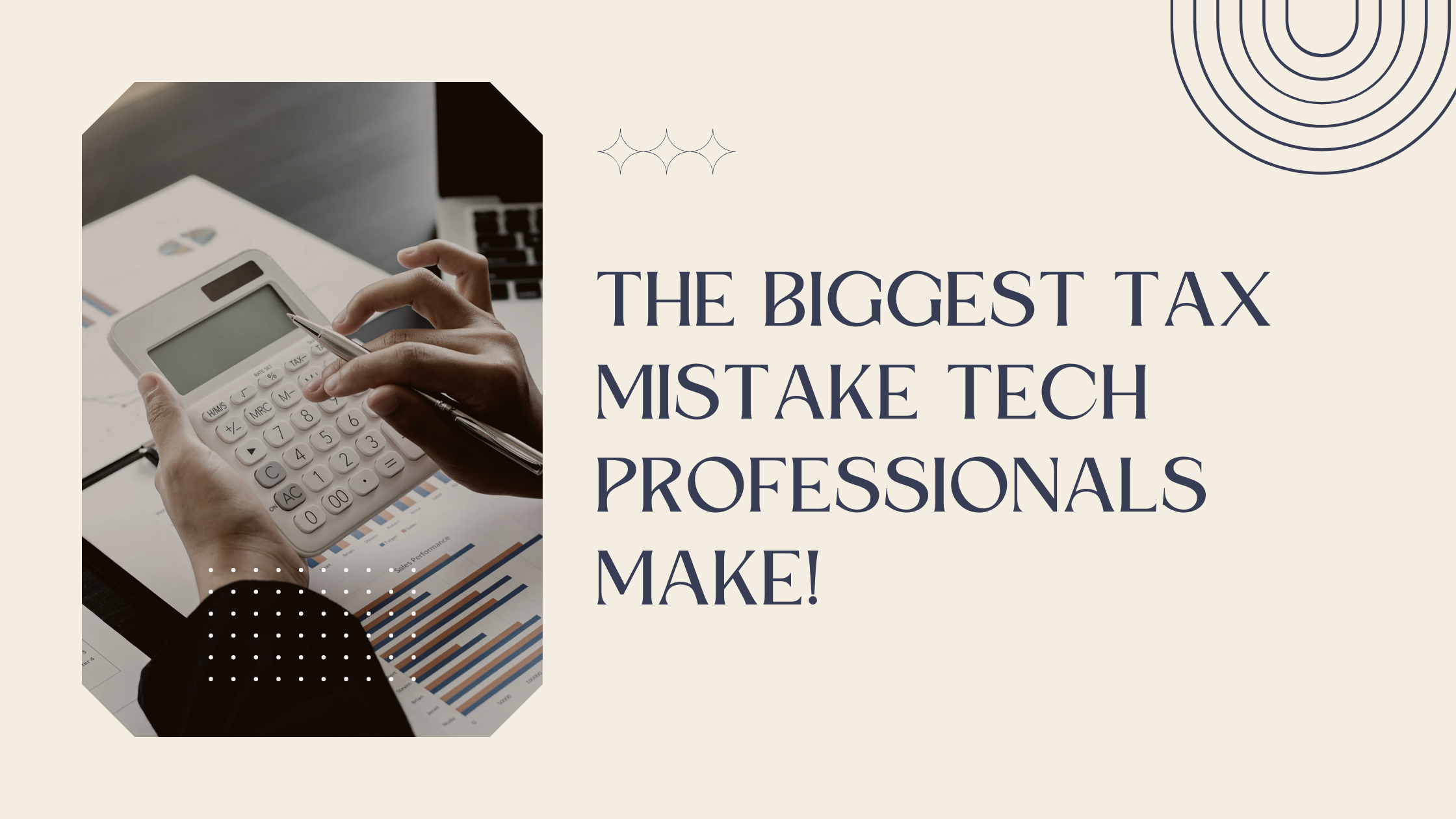Big Salary, Big Taxes? How To Keep More With Smart Planning?
True Root Financial is a financial advisor and financial planner based in San Francisco, CA. We serve clients across the globe.
As a high-earning tech professional in San Francisco, you already know that a bigger salary means a bigger tax bill. And with the April 15 tax deadline fast approaching, now is the time to ensure you’re making the right moves to minimize your tax burden not just for this year, but for years to come.
If you are a tech professional interested in learning how we can help you claim your financial independence by investing wisely, minimizing taxes, and maximizing your equity compensation, please book a no-obligation call here.
If you’re feeling the sting of RSU income, high California state taxes, and additional investment taxes, a financial advisor can help you implement last-minute tax-saving strategies while planning for a more tax-efficient future.
Why do High Earners Pay More in Taxes?
Progressive Tax System
The U.S. has a progressive tax system, which means the more you earn, the higher percentage you pay in taxes. For 2024, the top federal tax bracket is 37%, which applies to individuals earning over $609,350 or married couples filing jointly earning over $731,200.
Many tech professionals in the Bay Area find themselves in the 32%, 35%, or even 37% tax brackets, especially when factoring in stock-based compensation such as Restricted Stock Units (RSUs) or Incentive Stock Options (ISOs).
California’s High State Taxes
California has one of the highest state income tax rates in the country, with the top bracket at 13.3%. Even mid-six-figure earners can expect to pay around 9.3% in state taxes.
Additional Tax Considerations
- Net Investment Income Tax (NIIT): A 3.8% tax on investment income for individuals earning over $200,000 ($250,000 for married couples).
- Alternative Minimum Tax (AMT): High-income earners, particularly those with ISOs, may face AMT, which limits deductions and increases overall tax liability.
- Capital Gains Taxes: Selling stock at a profit can trigger short-term (up to 37%) or long-term (up to 20%) capital gains taxes.
Not sure how the Alternative Minimum Tax (AMT) works? Watch this quick video to understand AMT and how it affects high earners.
Immediate Tax Moves to Make Before April 15
Even with the tax deadline looming, there are still steps you can take to reduce your taxable income for the prior year:
1. Max Out Tax-Advantaged Contributions
- Contribute to an IRA: Tax Year 2024 and 2025 – $7,000, if you’re under age 50 / $8,000 if you’re age 50 or older. If your income is too high for a direct deduction, a Backdoor Roth IRA might be a smart move.
- Fund an HSA (Health Savings Account): In 2024, HSA contribution limits are $4,150 (self-only) and $8,300 (family). In 2025, they increase to $4,300 and $8,550, respectively. Individuals 55+ can add $1,000 extra.
2. Check for Missed Deductions
- State and Local Taxes (SALT) Deduction: If you haven’t hit the $10,000 cap yet, make sure your property taxes and state income tax payments are included.
- Charitable Donations: If you made donations last year but didn’t keep track, check your records for any deductions you can still claim.
3. Offset Capital Gains with Tax-Loss Harvesting
If you sold stocks last year at a gain, did you offset them with losses? If not, you might be paying more in taxes than necessary. Even though tax-loss harvesting needs to happen before year-end, an advisor can help you plan for the future.
4. File an Extension if Needed
If you need more time, file for an automatic six-month extension by April 15. But remember—this doesn’t extend your tax payment deadline. You still need to estimate what you owe and pay by April 15 to avoid penalties.
The Hidden Tax Traps of RSUs & Stock Compensation
For many Bay Area tech professionals, Restricted Stock Units (RSUs) and Incentive Stock Options (ISOs) create unexpected tax burdens. Here’s how to handle them wisely:
RSU Pitfalls
- RSUs are taxed as ordinary income when they vest, pushing you into higher tax brackets. If you had a large vesting last year, it might have resulted in under-withholding, meaning you owe more than expected.
- Check your W-4 withholding to ensure you’re withholding enough for the current year to avoid another big bill next April.
ISO Considerations
If you exercised ISOs last year but didn’t sell, you might owe Alternative Minimum Tax (AMT). An advisor can help you calculate whether selling some shares now would help balance your tax liability.
Exercising Incentive Stock Options (ISOs)? Learn when AMT applies and how to avoid costly surprises by watching the video below:
Stock Sale Planning for 2024
If you’re planning to sell stock this year, a planned selling strategy can help spread gains across tax years to avoid a major tax hit in 2025.
Preparing for Next Year: Proactive Tax Strategies for High Earners
A financial advisor doesn’t just help with this year’s taxes—they create a strategy to minimize future tax liability. Here’s what to do now to avoid another painful April next year.
Adjust Your Withholding & Estimated Taxes
- If you owed a large amount this year, increase your withholding on Form W-4 or make estimated tax payments to avoid underpayment penalties.
- Consider using your RSU income to automate estimated tax payments quarterly.
Plan for Tax-Efficient Investing
- Shift some of your investments into tax-advantaged accounts like 401(k)s, HSAs, and IRAs.
- Use municipal bonds or index funds to reduce taxable investment income.
Leverage Charitable Giving for Tax Benefits
- If you plan to give to charity, consider a Donor-Advised Fund (DAF) to take an immediate deduction while spreading donations over time.
- High earners benefit most from strategic charitable giving, reducing taxable income while supporting causes they care about.
Estate Taxes: What High Earners Need to Know Before 2026
Most tech professionals aren’t thinking about estate taxes yet, but changes are coming that could affect your long-term wealth.
Why Estate Taxes Matter for High Earners
- Right now, the estate tax exemption is $13.61 million per person ($27.22 million per couple)—but this is set to drop in 2026 unless Congress extends it.
- Any estate value above the exemption is taxed at 40% federal tax, and California doesn’t currently have an estate tax—but this could change.
What You Can Do Now?
- Annual Gifting: Give up to $18,000 per person tax-free each year to reduce your taxable estate.
- Set Up Trusts: If your net worth is rising fast, consider irrevocable trusts to keep assets out of your taxable estate.
- Review Beneficiaries: Ensure your retirement accounts, life insurance, and estate plans are set up properly.
Estate planning isn’t just for the ultra-wealthy. If your assets are growing rapidly, now is the time to prepare before the exemption drops in 2026.
The Value of a Financial Advisor Before April 15 and Beyond
A financial advisor does more than just help you with taxes once a year. They ensure that every financial decision—from RSU sales to estate planning—aligns with a tax-efficient strategy.
Before April 15, a financial advisor can help you:
- Identify last-minute deductions to reduce taxable income.
- Check RSU and ISO tax withholding to avoid surprises.
- Customizing a tax-efficient investment strategy to balance growth and tax savings.
- Prepare a plan for 2024 so you’re not scrambling next tax season.
Beyond April 15, a financial advisor helps you:
- Implement proactive tax strategies for next year.
- Optimize stock compensation plans to avoid high tax burdens.
- Build an estate plan to protect your wealth from future tax law changes.
- Quarterly tax planning to stay ahead of tax law changes and avoid surprises.
Next Steps For You
Are you a tech professional in the Bay Area looking to optimize your taxes and investments? Let’s create a strategy to help you keep more of your hard-earned money. Schedule a consultation today and start making your money work smarter!









Leave a Reply
Want to join the discussion?Feel free to contribute!